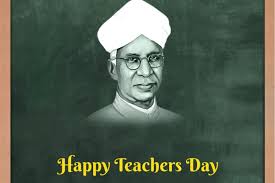Dr. Sarvepalli Radhakrishnan – Early Life, Education, and Career
Early Life and Family Background
Dr. Sarvepalli Radhakrishnan, a prominent philosopher and the second President of India, was born on September 5, 1888, in Tirutani, a small town in Tamil Nadu. His family belonged to the Telugu-speaking community, and he grew up in a culturally rich environment that influenced his intellectual development. Radhakrishnan’s early education took place in local schools, where he demonstrated exceptional academic abilities and a keen interest in literature and philosophy.
Education and Academic Achievements
Radhakrishnan pursued higher education at the Presidency College in Madras, where he excelled in philosophy. He completed his Bachelor’s degree in 1906 and later pursued a Master’s degree, which he achieved in 1908. His academic excellence earned him recognition, and he soon became a prominent figure in Indian philosophical circles. Radhakrishnan’s deep understanding of Eastern and Western philosophies set him apart and led him to a distinguished career in academia.
Career and Contributions
Radhakrishnan’s career in education began as a lecturer at Madras College, and he quickly gained a reputation as an exceptional teacher and thinker. In 1918, he was appointed as a professor of Philosophy at the University of Calcutta. His work focused on the synthesis of Indian and Western philosophical thought, and he was instrumental in modernizing the Indian philosophical curriculum. Radhakrishnan’s scholarly works, including “The Philosophy of the Upanishads” and “Indian Philosophy,” gained international acclaim.
In 1952, he was elected as the Vice President of India, and in 1962, he became the President of India. His presidency was marked by his efforts to promote education and cultural development in the country. Radhakrishnan’s contributions to Indian education and philosophy have had a lasting impact, and he is remembered for his role in shaping modern Indian thought.

Why This News is Important
Influence on Education
Dr. Sarvepalli Radhakrishnan’s legacy in education is profound. His emphasis on integrating Indian philosophical traditions with Western thought helped shape the Indian educational landscape. His role as an educator and academic leader set high standards for intellectual discourse and education in India.
Promotion of Indian Philosophy
Radhakrishnan’s scholarly work played a crucial role in promoting Indian philosophy on the global stage. By interpreting and presenting Indian philosophical ideas to the Western world, he fostered a greater understanding and appreciation of Indian thought.
Presidential Impact
As the second President of India, Radhakrishnan’s presidency was notable for his efforts to foster a sense of national unity and promote educational initiatives. His tenure highlighted the importance of education in nation-building and the role of intellectual leaders in shaping national policy.
Inspiration for Future Generations
Dr. Radhakrishnan’s life and career serve as an inspiration to students and scholars alike. His dedication to education, philosophy, and public service exemplifies the values of intellectual curiosity, integrity, and commitment to societal progress.
Celebration of Teacher’s Day
Dr. Radhakrishnan’s birthday, September 5, is celebrated as Teacher’s Day in India. This day honors his contributions to education and recognizes the vital role of teachers in society, emphasizing the importance of education in personal and national development.
Historical Context: Dr. Sarvepalli Radhakrishnan’s Impact
Dr. Sarvepalli Radhakrishnan emerged as a pivotal figure during a transformative period in Indian history. His academic career coincided with India’s struggle for independence, and his intellectual contributions provided a philosophical framework for understanding Indian identity and culture in a modern context. His tenure as Vice President and then President of India came during the early years of the Indian Republic, a time when the country was laying the foundations for its democratic institutions and educational systems. Radhakrishnan’s work bridged traditional Indian thought with contemporary global perspectives, reflecting the complex interplay between tradition and modernity in post-colonial India.
Key Takeaways from Dr. Sarvepalli Radhakrishnan’s Early Life, Education, and Career
| Serial Number | Key Takeaway |
|---|---|
| 1 | Dr. Sarvepalli Radhakrishnan was born on September 5, 1888, in Tirutani, Tamil Nadu. |
| 2 | He excelled in philosophy at the Presidency College in Madras, achieving both Bachelor’s and Master’s degrees with distinction. |
| 3 | Radhakrishnan’s academic career began at Madras College, and he later became a professor at the University of Calcutta. |
| 4 | His influential works include “The Philosophy of the Upanishads” and “Indian Philosophy,” which gained international recognition. |
| 5 | Radhakrishnan served as Vice President of India (1952) and President of India (1962), contributing significantly to Indian education and culture. |
Important FAQs for Students from this News
1. Who was Dr. Sarvepalli Radhakrishnan?
Dr. Sarvepalli Radhakrishnan was an eminent philosopher and the second President of India. He is renowned for his contributions to Indian philosophy, education, and public service.
2. What are Dr. Radhakrishnan’s major contributions to philosophy?
Dr. Radhakrishnan is known for his works that bridge Eastern and Western philosophical thought, including “The Philosophy of the Upanishads” and “Indian Philosophy,” which have gained international acclaim.
3. Why is September 5 celebrated as Teacher’s Day in India?
September 5, the birthday of Dr. Radhakrishnan, is celebrated as Teacher’s Day in India to honor his contributions to education and recognize the importance of teachers in shaping the future of students.
4. What was Dr. Radhakrishnan’s role in Indian politics?
Dr. Radhakrishnan served as Vice President of India from 1952 to 1962 and then as President of India from 1962 to 1967, during which he promoted education and cultural development.
5. How did Dr. Radhakrishnan impact Indian education?
Dr. Radhakrishnan’s emphasis on integrating Indian philosophical traditions with Western thought helped modernize Indian education and promote intellectual discourse.
Some Important Current Affairs Links

















